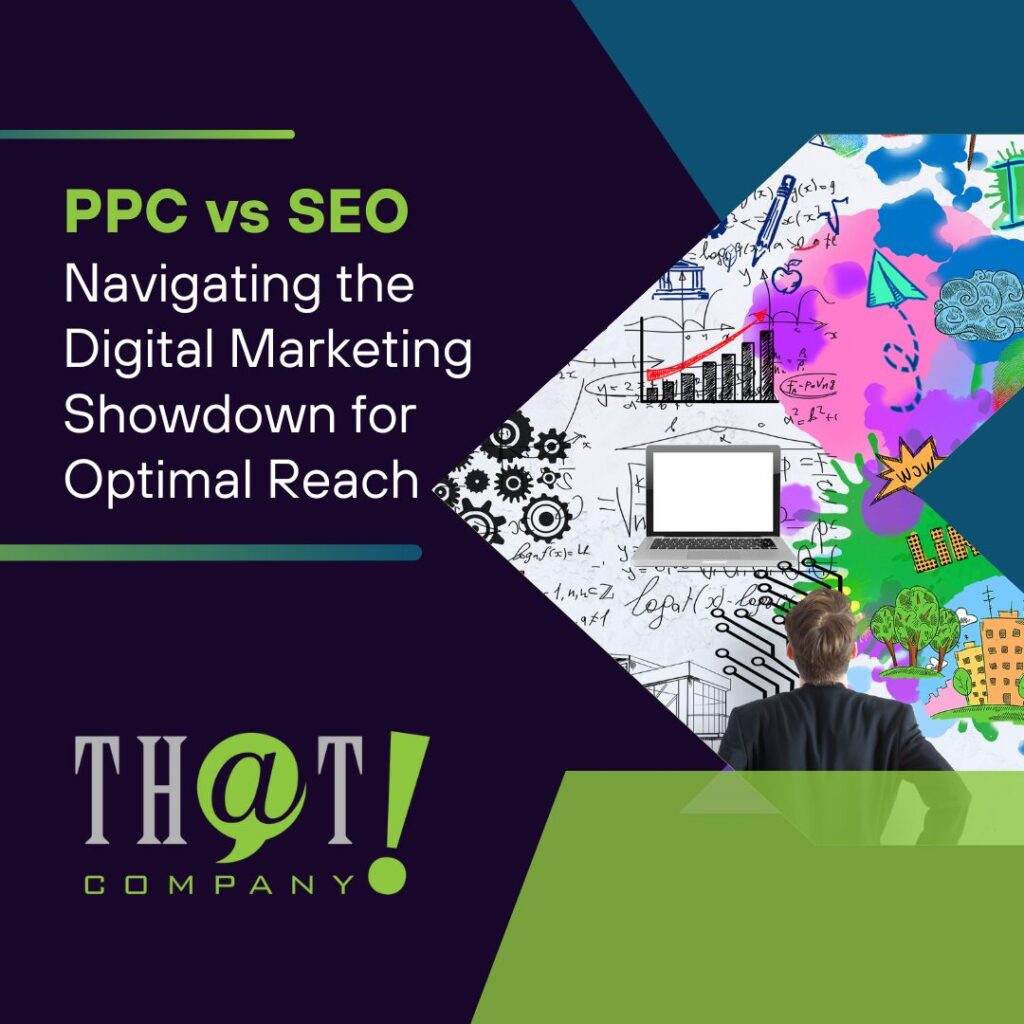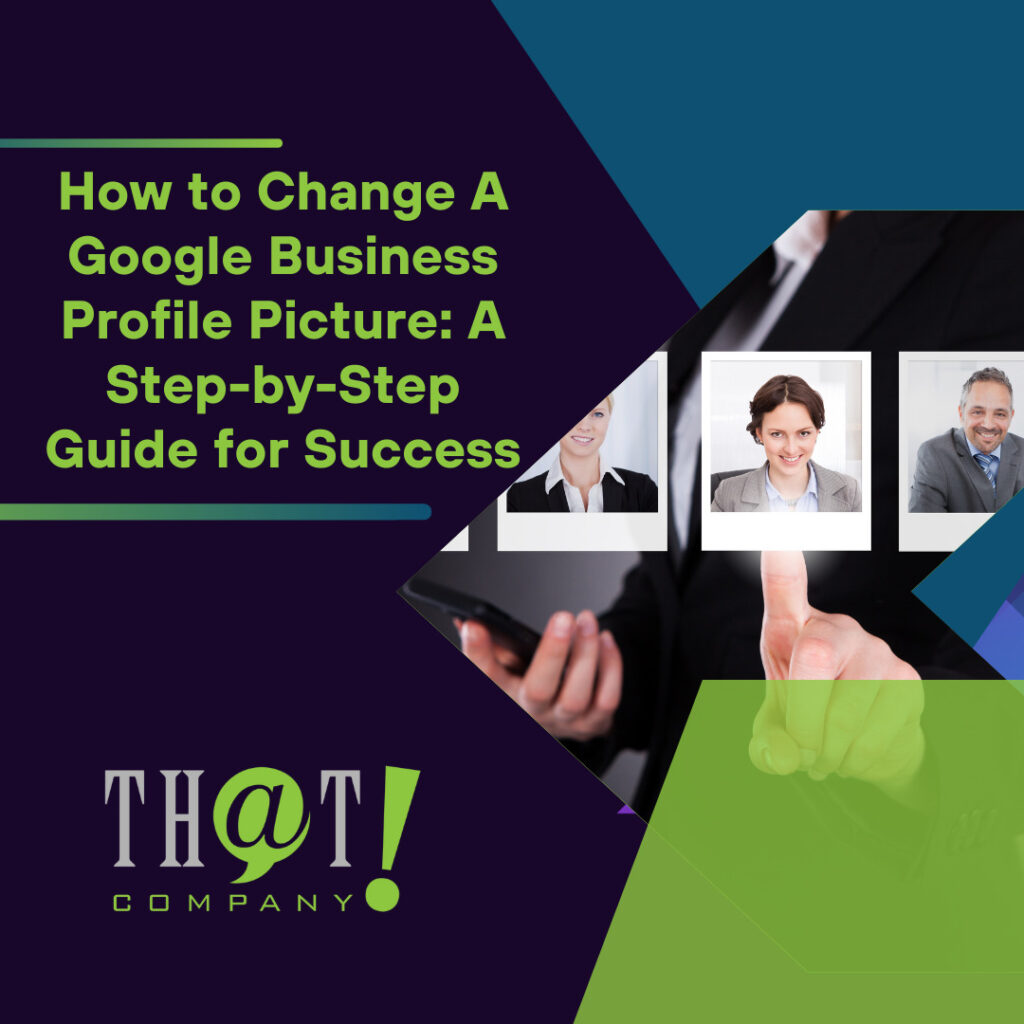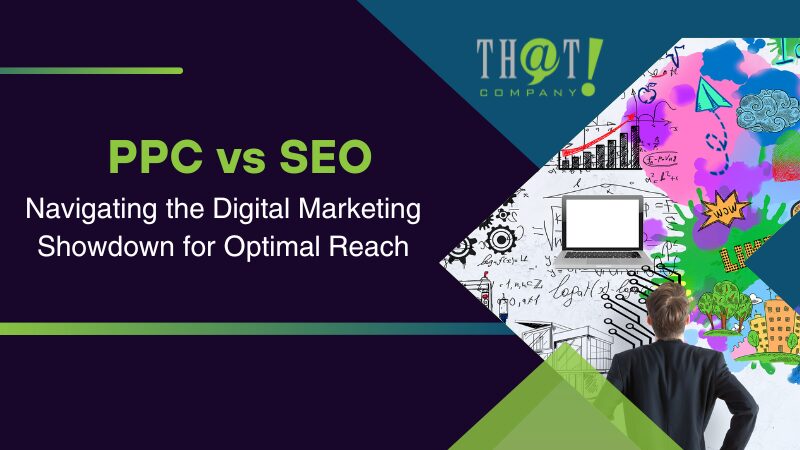
Deciding between PPC and SEO for your business? In the great “PPC vs SEO” debate, PPC offers quick visibility and targeted ads while SEO builds organic traffic and credibility over time. This guide cuts through the jargon to help you understand the strengths and limitations of each, providing a clear foundation for determining which strategy aligns with your business objectives.
Key Takeaways
- SEO is a long-term digital marketing strategy enhancing organic traffic by optimizing website content, while PPC offers immediate traffic through paid advertising with specific targeting options such as keywords, audience behaviors, and demographics.
- Both SEO and PPC have unique benefits and drawbacks; SEO is cost-effective for long-term growth, whereas PPC provides instant results and precise targeting but requires ongoing investment and can be costly.
- Combining SEO and PPC strategies can provide comprehensive digital marketing benefits, utilizing SEO for building organic presence and PPC for immediate reach and targeted advertising, including retargeted campaigns for user re-engagement.
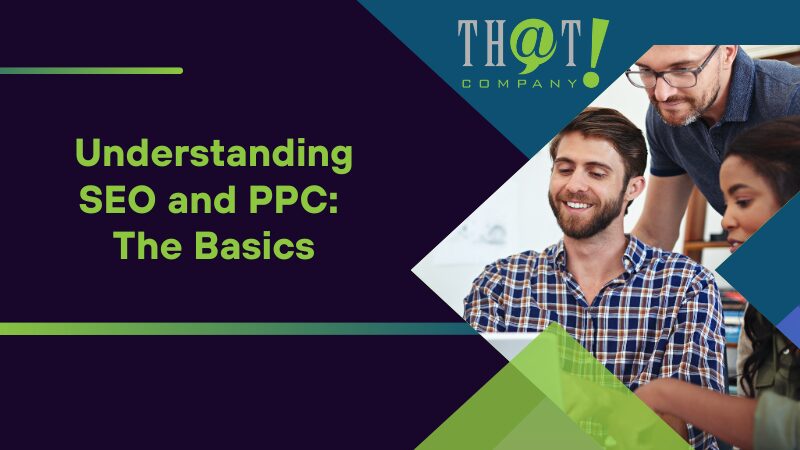
Understanding SEO and PPC: The Basics
SEO and PPC, both critical tools in digital marketing, serve unique purposes. SEO, or search engine optimization, involves strategically optimizing a website to improve its ranking in search engine results and attract organic traffic. On the other hand, PPC, which stands for pay-per-click, is an online advertising model where advertisers pay a fee each time their ad is clicked, providing immediate traffic and targeted reach.
While SEO aims for long-term traffic growth, PPC offers instant, paid search results only. SEO is often seen as owning organic search results, while PPC is more akin to renting traffic. The analysis of keywords from organic and paid searches can provide distinct insights for targeting and campaign adjustments.
When combined, SEO and PPC can work in harmony to amplify your marketing efforts. Here are some benefits of using both methods together:
- PPC can provide immediate reinforcement while you wait for the gradual effect of SEO.
- This combination allows for the identification of effective keywords using metrics from both methods.
- The user preference for organic results over paid search ads can inform ad placement and content creation.
What is SEO?
SEO, an acronym for search engine optimization in digital marketing, is a technique that enhances a website’s ranking in search engine results, which in turn boosts organic traffic to the site. SEO focuses on creating content that aligns with search intent and incorporates factors that search engines crawl such as page titles, meta descriptions, H1/H2 title tags, and URLs to improve search engine result pages (SERP) rankings.
Conducting keyword research is an integral part of SEO. It involves:
- Identifying the words and phrases used in search engines
- Developing content that matches user search intent
- Optimizing both SEO and PPC marketing campaigns
Additionally, technical SEO holds significance as it encompasses the optimization of a website’s technical elements to facilitate search engines in locating, crawling, and indexing its content accurately, thereby playing a crucial role in enhancing visibility and ranking in search results.
What is PPC?
Pay-Per-Click, known as PPC, is an online advertising model in which advertisers are charged a fee each time their ad is clicked. It functions by securing ad space on search engine results pages, with each click resulting in paid traffic being directed to the advertiser’s website. PPC offers immediate visibility on platforms like the Google search results, enhancing the likelihood of customer conversions.
PPC ads can be precisely targeted through various means such as:
- Keywords
- Demographics
- Location
- Language
- Device
- Time of day
- Retargeting previous visitors
Ad performance can be assessed through metrics such as ROI, conversion rates, and by evaluating the efficacy of the ads to pinpoint areas for enhancement. Google Ads is widely recognized as the leading platform for PPC campaigns, with strategically placed ads on search engine results and landing pages, ensuring optimal visibility.
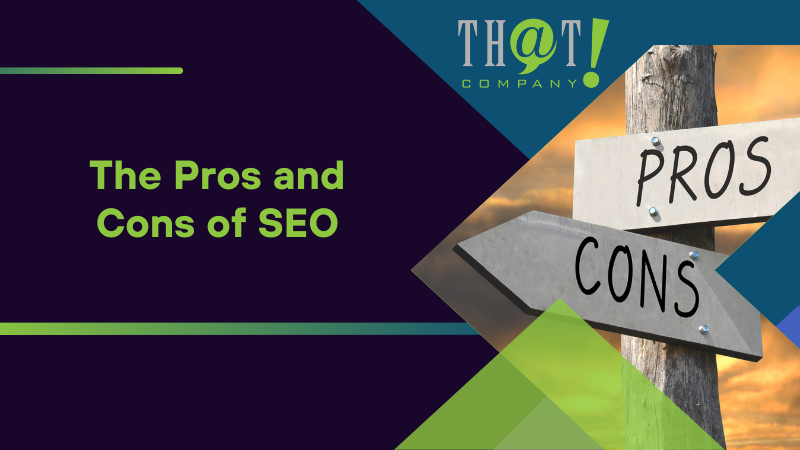
The Pros and Cons of SEO
While SEO is a powerful tool in digital marketing, it comes with its share of advantages and disadvantages. Consistent appearance in search results for relevant keywords related to your offerings helps in establishing trust and brand authority with your intended audience.
However, SEO also has its downsides. One of the significant drawbacks of SEO is the time it takes to see initial results, which can typically range from one to three months depending upon the health of your website. Additionally, maintaining your SEO efforts can be challenging due to constant changes in search engine algorithms that can affect rankings.
Advantages of SEO
A key advantage of SEO is its potential to yield long-term and sustainable benefits. Achieving a high ranking in search engine results can result in:
- steady and growing traffic over time
- bolstering your online presence and brand recognition
- directing specific traffic by ensuring your website appears on the first page of search engine results for relevant searches
- attracting potential customers who are closer to making a purchase and are more inclined to convert, with the use of long-tail keywords.
Furthermore, SEO is lauded for its cost-effectiveness as it generates organic and free traffic, with the only expense being the initial and routine on-going optimization efforts. This results in a higher return on investment (ROI) compared to paid media channels.
Disadvantages of SEO
Despite its numerous advantages, SEO also comes with some drawbacks. SEO can be time-consuming, particularly when implementing and adjusting strategies for organic growth. The changing nature of Google’s algorithm can impact SEO strategies, leading to fluctuations in search rankings and requiring marketers to adjust their approach to maintain visibility.
Furthermore, to maintain an effective SEO strategy, continuous tasks like building and monitoring backlinks, identifying and creating internal links, updating content with targeted keywords, and optimizing for long-tail keywords are needed to stay competitive and adapt to search engine updates.
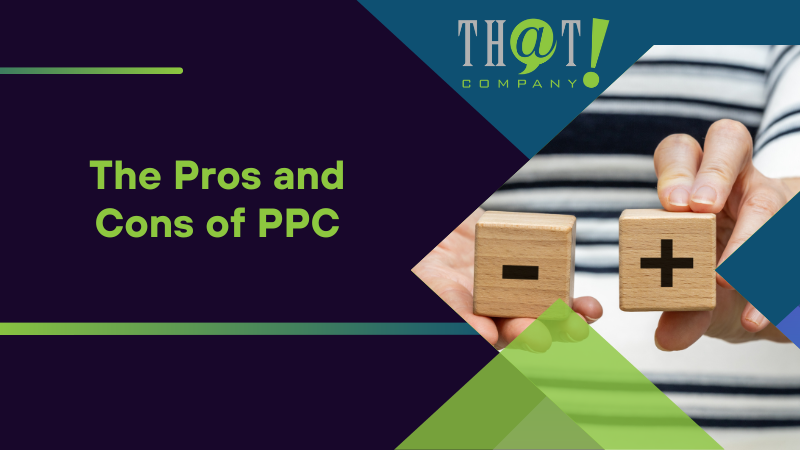
The Pros and Cons of PPC
Similarly to SEO, PPC also presents its own set of advantages and disadvantages. On the plus side, PPC offers:
- Immediate results, enabling businesses to swiftly gain visibility
- Precise targeting, displaying ads to a specific audience
- Flexibility to experiment with various ad components
However, PPC advertising can be cost-effective for businesses when a strong quality score is achieved, leading to reduced bid costs, and by optimizing ads to increase relevancy and selecting more affordable keywords.
On the downside, PPC has the following drawbacks:
- Continuous investment is required as payment is made for each click, which can result in high costs.
- Vigilant monitoring is necessary to optimize budget allocation.
- PPC might dissuade users who favor organic search outcomes.
Advantages of PPC
PPC campaigns deliver immediate results by enabling advertisers to swiftly create ads and commence directing traffic to their site upon launching the first PPC ad campaign. PPC provides precise targeting options, including ad targeting based on search terms, audience behaviors, content types, specific keywords, demographics, interests, and geographical locations, ensuring that ads reach the intended audience.
PPC advertising offers flexibility by allowing advertisers to:
- Make real-time adjustments to their budget, campaign settings, and target audience
- Facilitate rapid responses to market trends and performance data
- Seize opportunities as they arise
This flexibility is a key advantage of PPC advertising.
Disadvantages of PPC
The use of the cost-per-click model can make PPC quite expensive, especially when bidding for valuable keywords. This can pose a significant challenge for startups and small businesses with limited budgets. Ceasing PPC investment will result in the complete disappearance of unbranded search traffic from those ads, rendering it an unsustainable investment without consistent funding.
Furthermore, certain users may exhibit reluctance towards PPC ads, often due to their disapproval or lack of trust, resulting in a potential decline in traffic for the advertiser.
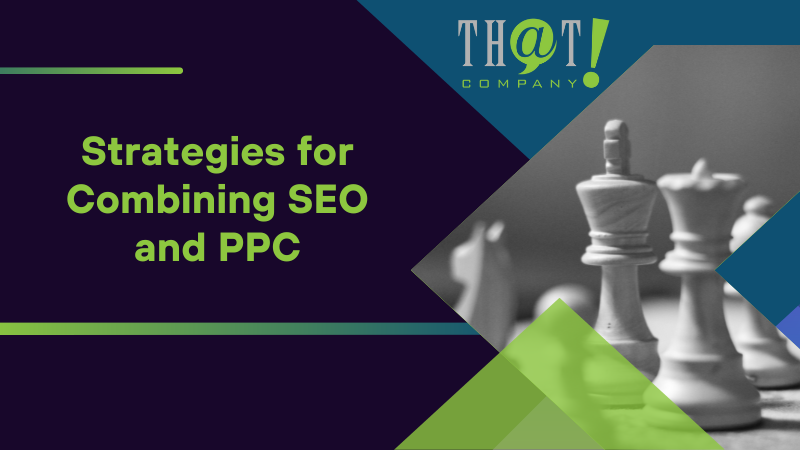
Strategies for Combining SEO and PPC
Despite each having their own strengths and weaknesses, merging SEO and PPC can lead to optimal results. SEO and PPC can be utilized in tandem to maximize outcomes, as the continual presence on search engines can enhance brand recognition and attract specific traffic. Also, conducting keyword research is crucial as it uncovers potential targets for both SEO and PPC campaigns, thereby enhancing the overall marketing strategy.
PPC ads offer the capability to swiftly expand the reach of content, thereby amplifying visibility on relevant websites and potentially generating backlinks and other SEO advantages as the content garners attention. Also, retargeting is a strategic approach aimed at re-engaging visitors who have exited a website without completing a desired action.
Keyword Research
Keyword research is of paramount importance in digital marketing. This process involves the systematic identification and analysis of the search terms utilized by individuals to locate information on the internet. It’s crucial in developing content that matches user search intent and optimizing both SEO and PPC marketing campaigns.
There are several tools available for performing keyword research for SEO and PPC, including:
The primary contrast between PPC and SEO keyword research lies in the search intent targeting. PPC keywords are categorized into broad match, phrase match, and exact match, whereas SEO emphasizes search themes.
Content Promotion
Promoting content plays a vital role in digital marketing. PPC ads can facilitate the dissemination of content to a broader audience, providing it with a rapid boost and enhancing its online visibility further. The objective of promoting the most recent blog post, guide, report, or case study on social media is to provide it with a rapid boost and enhance its visibility.
Promoting website content on social media may potentially facilitate the acquisition of essential backlinks that can enhance rankings. Additionally, utilizing social media ads can aid in the rapid distribution of your content, enhancing its reach.
Retargeting
In digital marketing, retargeting serves as an effective tool. It’s a strategic approach aimed at re-engaging visitors who have exited a website without completing a desired action, such as making a purchase. The objective of using retargeting ads is to encourage these visitors to return and complete the action, thereby increasing conversions.
In terms of retargeting, PPC and SEO take different approaches. Retargeting using PPC involves pay-per-click advertising to reach individuals who have previously visited your website, while retargeting using SEO is predominantly focused on email marketing.

Choosing the Right Approach for Your Business
The choice between SEO and PPC, or the decision to use both, isn’t universally applicable across all scenarios. It depends on several factors, including:
- Your budget
- Target audience
- Industry
- Objectives
Financial considerations play a crucial role in determining marketing strategies. For small businesses, it is essential to evaluate the overall budget, timeframe, and business objectives.
In terms of objectives, opting for SEO over PPC may be more appropriate for businesses with targeted objectives focused on sustained expansion, such as establishing credibility and significance through natural means. The industry in which a company operates can also have a substantial impact on its decision-making process between SEO and PPC.
Budget Considerations
Considering your budget is crucial in the decision-making process between SEO and PPC, as it directly influences the extent and potential growth of your digital marketing endeavors, as well as the long-term viability and effectiveness of your campaigns. The typical cost of SEO services can vary significantly, ranging from $500 to over $10,000, based on the complexity of the services and the scale of the company. The cost per click in PPC advertising is determined by industry and competitive factors, generally derived by dividing the total ad spend by the number of ad clicks.
When establishing a budget for SEO, a business should consider its size and objectives. For a comprehensive SEO campaign, it is advisable to allocate between $36,000 and $60,000 for a 12-month period. However, most businesses can anticipate a monthly budget ranging from $500 to $5,000 for SEO efforts.
Strategies for cost reduction and result maximization in SEO implementation include:
- Assessing ROIs to better allocate the budget
- Bundling tools and software to save expenses
- Investing in SEO services to improve organic traffic, thereby minimizing reliance on paid advertising.
Target Audience and Industry
Your target audience also impacts the choice between SEO and PPC. Here are some factors to consider:
- PPC offers more precise audience targeting options such as search keywords, time of day, and day
- SEO concentrates on enhancing organic search rankings
- Understanding your industry is crucial for SEO and PPC strategies as it enables the optimization of campaigns using industry-specific keywords and trends.
Customize SEO and PPC campaigns for different industries by:
- Conducting tests to identify target keywords with PPC
- Utilizing PPC to manage your SEO messaging
- Identifying primary keywords for PPC bidding
- Utilizing geographic data from PPC campaigns
- Adjusting your SEO approach to focus on specific regions with higher conversion rates.
Timeframes and Objectives
Another factor to consider when deciding between SEO and PPC is the time it takes to see results. Generally, SEO usually takes 3–6 months to demonstrate results, with a minimum of 6 months for more noticeable outcomes, whereas PPC can yield immediate short-term results.
Specific objectives that can be efficiently achieved through PPC advertising include:
- immediate brand exposure
- the ability to measure clicks
- establish KPIs
- reduce average CPC
- manage wasted spend effectively.
On the other hand, SEO offers sustainable and consistent long-term results, making it suitable for objectives such as:
- increasing organic share of voice over a specific period, like 12 months
- cultivating a robust organic presence
- bolstering brand credibility over a prolonged duration
- achieving long-term brand recognition
- building a sustained organic audience
SEO is particularly favorable in situations where these objectives are primary goals.
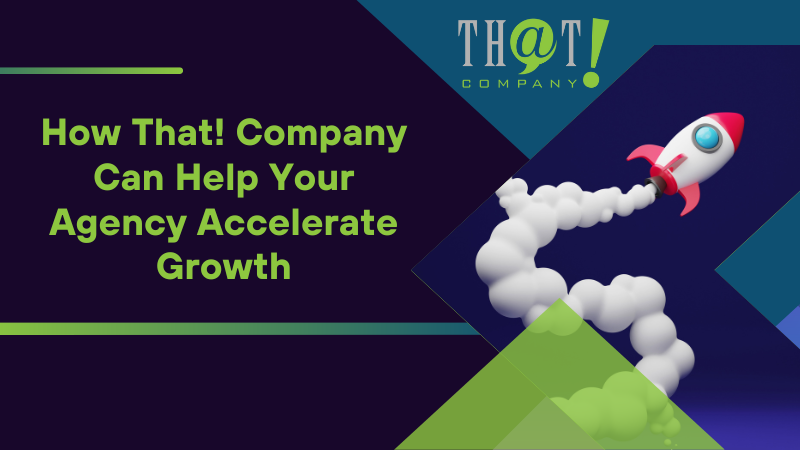
How That! Company Can Help Your Agency Accelerate Growth
That! Company, a white label digital marketing agency offers a solution for agencies that aim to broaden their service offerings without requiring in-house expertise. Offering white label SEO and PPC services, That! Company enables agencies to provide SEO and PPC management under their own brand name. These services are specifically designed to help agencies broaden their service portfolio without the necessity of building the expertise or infrastructure internally.
The white label services offered by That! Company can significantly benefit agency client relationships by providing:
- Resellable PPC advertising
- Optimizing agency operations
- Enhancing long-term customer satisfaction
- Offering educational support for clients
That! Company distinguishes itself by providing a dedicated team for white label PPC campaigns, granting access to popular platforms such as Google Ads and social media. Their distinct offering encompasses exceptional communication, personalized management, and the utilization of ConversionTrax technology to enhance campaign success.
In addition to managing white label SEO and white label PPC management, That! Company provides a wide range of services including social media optimization, graphic design, and website design. This comprehensive approach enables agencies to enhance their growth potential by offering a broader array of digital marketing solutions to their clients.
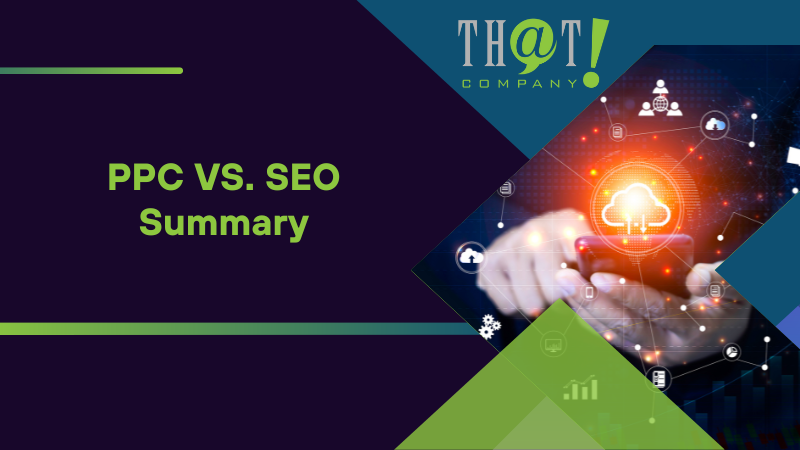
Summary
In the bustling world of digital marketing, the face-off between SEO and PPC is a battle of titans. Both tools have their unique benefits and drawbacks. SEO offers long-term benefits, targeted traffic, and cost-effectiveness but can be time-consuming and subject to algorithm changes. On the other hand, PPC offers immediate results, precise targeting, and flexibility, but can be costly and may deter some users.
Ultimately, the choice between SEO and PPC or a combination of both depends on your budget, target audience, industry, and objectives. Considering all these factors will guide you in making an informed decision that aligns with your business goals.
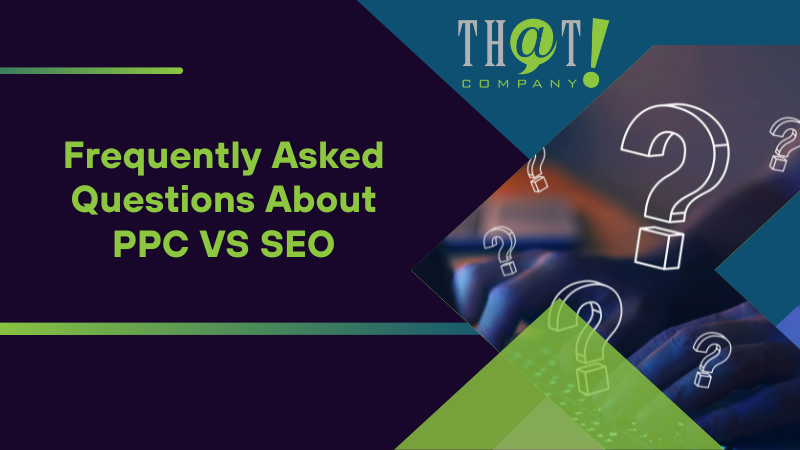
Frequently Asked Questions
Is SEO a better investment than PPC?
Yes, SEO is a better investment than PPC because it typically produces better results, capturing over 40% of revenue with organic traffic, and offers long-term benefits.
Which job is better SEO or PPC?
Both SEO and PPC have their strengths and work together as powerful allies. SEO lays a strong foundation for consistent traffic over time, while PPC generates immediate traffic. Choose the approach that aligns with your specific business goals.
Is PPC cheaper than SEO?
SEO is more cost-effective than PPC in the long run, as you don’t have to pay for each click. It is advisable to use a combination of both depending on your short-term and long-term traffic goals, budget, and other factors.
What are the advantages of combining SEO and PPC strategies?
Combining SEO and PPC strategies can maximize outcomes by enhancing brand recognition and attracting specific traffic, while also allowing for the identification of effective keywords using metrics from both methods.
How long does it typically take to see results from SEO?
Typically, it takes 3-6 months to see results from SEO, with more noticeable outcomes taking a minimum of 6 months.

